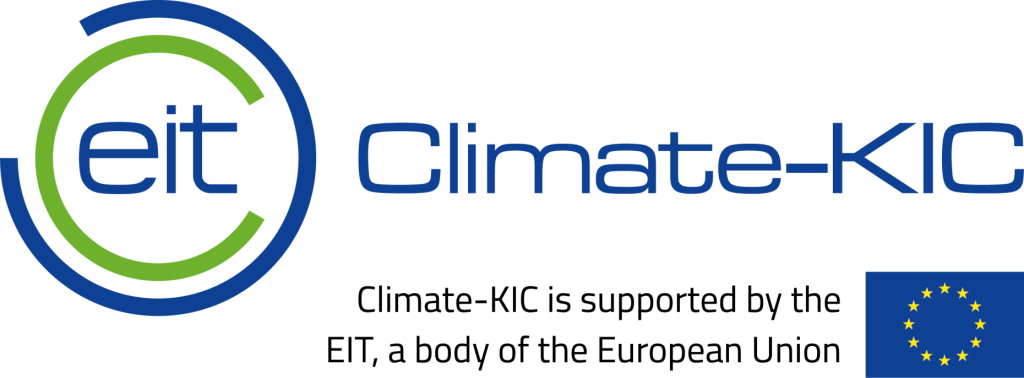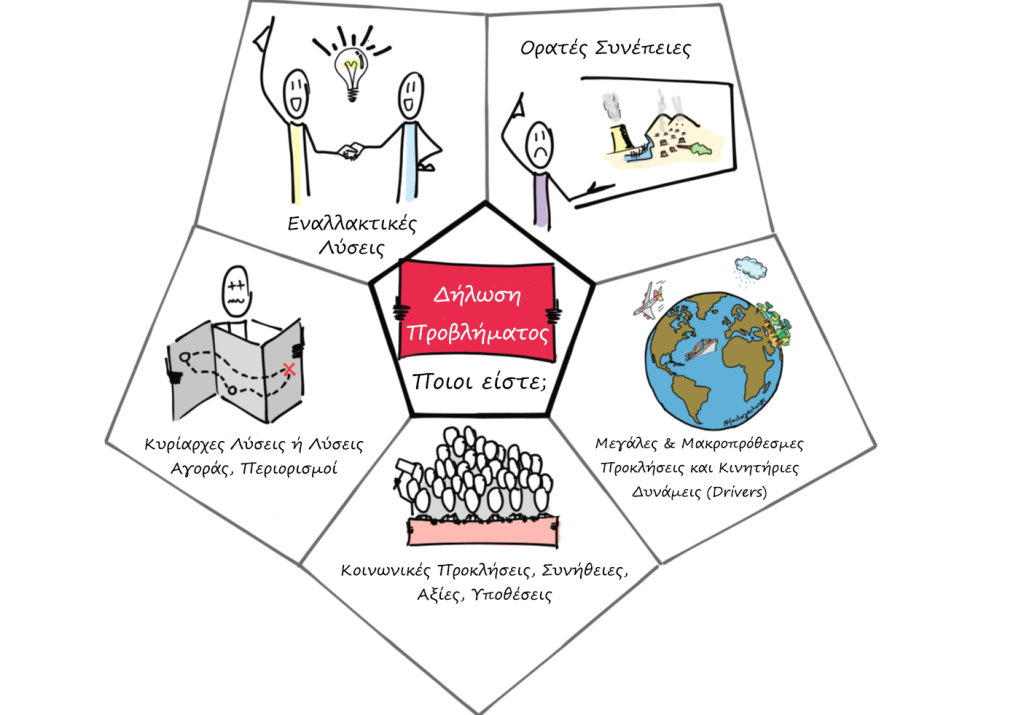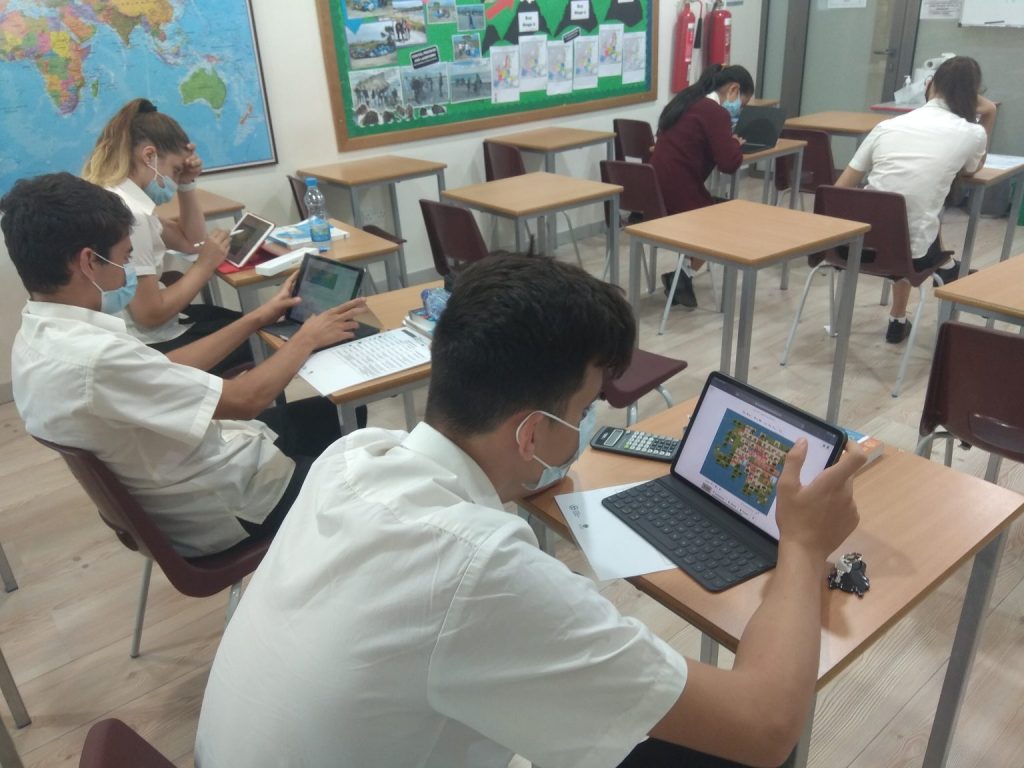Funded: EIT Climate-KIC Young Innovators
Duration: 11 months (1/1/2020 – 31/12/2020)
Consortium partners: CUT (lead partner), Cyprus Energy Agency (CEA), Centre for Systems Solutions
Total Budget: €53,250.00
CUT budget: €23,875.00
YICY2020 – Climate KIC [Young Innovators 2020 – Climate KIC; January 2020 – December 2020; Grand No: 200491] funded to the Cyprus University of Technology (project coordinator: Dr Stelios Yiatros; CIL Members: Dr Andri Ioannou and Nicoletta Pantela) under the EIT- European Institute of Technology. The project’s consortium includes the Cyprus University of Technology (Lead Partner), the Cyprus Energy Agency and the Centre for Systems Solutions in Wroclaw- Poland.
See also: https://systemssolutions.org/projects-and-activities/young-innovators-lab/

EIT Climate-KIC Young Innovators
EIT Climate-KIC is a Knowledge and Innovation Community (KIC), working to accelerate the transition to a zero-carbon economy. Supported by the European Institute of Innovation and Technology (EIT), EIT Climate-KIC identifies and supports innovation that helps society mitigate and adapt for climate change. The community believes that a decarbonised economy is not only necessary to prevent catastrophic climate change, but presents a wealth of opportunities for business and society.
The Young Innovators programme of EIT Climate-KIC is a signature educational programme that aims to foster a systemic view on current climate challenges and empower young people to develop innovative solutions through Problem-based Learning experiences. With the Young Innovators programme, students are invited to join this journey where they are introduced to a systems innovation approach. Systems innovation approach is based on the awareness that any change that is planned to be introduced in a particular sector in society will affect and be affected by other parties. Taking a systems innovation approach enables students to explore the relationships between such interconnected aspects and also to take account of the people who are affected, their values, their expectations and their reactions. Involving students working towards a healthy and sustainable planet, and encouraging them to act as catalysts for systemic change, is critical. The thinking around climate innovation needs to start now as these young people are the business, societal and national leaders of tomorrow.
Objectives
The EIT Climate-KIC Young Innovators Cyprus aims to support secondary and high school students to develop their 21st century skills and competences related to climate innovation, under the umbrella of the PBL pedagogy. Among other competencies, the project promotes systems thinking and analysis, critical thinking, creative problem-solving and entrepreneurship. The programme has 2 Stages:
Stage 1: Teacher Training
In stage 1 of the project, different teaching specialists (e.g. Geography, Science, Chemistry, Biology, Design & Technology etc.) and environmental and sustainable development educators across Cyprus will participate in training sessions.
Stage 2: Pilot Workshops with Students
In stage 2 of the project, the trained educators will be called to prepare pilot workshops and challenges for their students with the support of our coaches and problem owners. The participating students will be introduced to the programme via the online social simulation followed by the Young Innovators tools to analyse local issues in the context of Cyprus.
Pedagogical Framework
Systems Innovation: With the YI programme, students are invited to join this journey where they are introduced to a systems innovation approach. Systems innovation approach is based on the awareness that any change that is planned to be introduced in a particular sector in society will affect and be affected by other parties. Taking a systems innovation approach enables students to explore the relationships between such interconnected aspects and also to take account of the people who are affected, their values, their expectations and their reactions. Involving students working towards a healthy and sustainable planet, and encouraging them to act as catalysts for systemic change, is critical. The thinking around climate innovation needs to start now as these young people are the business, societal and national leaders of tomorrow. Through the use of a systems innovation approach can equip young people with the skills they need for a low carbon lifestyle. Also, can empower them and support a mindset that drives effective climate innovation and can help them achieve the most important competencies such as creativity, systems thinking and complex problem-solving skills. In order to develop those competencies, the Young Innovators team adapted the visual thinking tools created by the EIT Climate-KIC Community. The visual tools help to facilitate the students’ understanding of complex real-world problems such as climate change, energy or food, and come up with creative solutions for them. When taking on a challenge-based learning approach with real-life challenges, the tools help to tap into the student’s creativity to innovate.
PBL: Students will be introduced to the visual thinking tools and will be called to work under the umbrella of the Problem – based Learning (PBL). PBL is defined as the learning that is driven by a problem. In PBL learning, students work collaboratively in small groups on the given case scenario. They define the problem and analyze the different facts that arise from the case scenario. As students understand the problem better, they generate hypotheses for possible solutions. During the decision-making process students search for the new knowledge and specifically those valuable data that can support and validate their hypotheses. Discussing and negotiating ideas with their teammates are essential to conclude to the best possible solution.
PBL pedagogy follows a student-centered approach where students self-direct their own learning objectives in contrast to the traditional learning instruction. This approach provides an immersive and a holistic experience to the students by combining theory and practice. Students apply the new knowledge to develop a sustainable solution to the defined problem. Furthermore, PBL includes case scenarios that deal with authentic and real-life problems, emerging from existing local needs in order to transfer the skills learned through PBL to a real-world context.
Social Simulations: Social simulations are experiential processes where a group of participants collectively explores a complex reality. Complex problems require solutions that respect the laws of nature and the needs of people. Bringing together diverse stakeholders in a safe space is essential to exploring various solutions and testing their viability. This is why we design and implement social simulations. It is social because it requires the participation of real people who represent different groups and organizations. We call it a simulation because it represents a carefully selected real-world situation or a process, enabling participants to actively operate its key elements and make claims about how they work. This simulated reality is created through the use of game elements (roles, problem cards, pictures, tokens, boards, etc.). [Centre for Systems Solutions: https://socialsimulations.org/]
Learning Material
In the context of the EIT Climate-KIC Young Innovators programme we are using two types of tools, the New Shores, an online social simulation and the EIT Climate-KIC Visual Toolbox. Each tool is described below.
The New Shores Social Simulation
The EIT Climate-KIC Young Innovators Cyprus consortium will be using the “New Shores”, an online social simulation aimed at 12-18 year old students that can be played in a classroom or remotely. This facilitated simulation offers a unique opportunity to participants to learn through the individual and collective actions to run an isolated island to a sustainable future or its demise. In stage 1 of the project, teachers will have the opportunity to get familiar and experiment with the online social simulation. In stage 2, the game will serve as an introductory activity where students will be called to play the game collaboratively exploring the different pathways to a sustainable future and understanding the barriers to effective climate action.
The EIT Climate-KIC Visual Toolbox
The EIT Climate-KIC Young Innovators Cyprus consortium will be using the EIT Climate-KIC Visual toolbox resources for systems innovation analysis. The visual tools help to facilitate the students’ understanding of complex real-world problems such as climate change, energy or food, and come up with creative solutions for them. By following the system thinking approach for understanding the multiple aspects of a problem, visual tools help to tap into the student’s creativity to innovate. The Visual Toolbox consists of five tools but the following three will be used: The Pentagonal Problem, The Context Map, The Cover Story. In stage 1 of the project, teachers will have the opportunity to get familiar and experiment with the EIT Climate-KIC Visual toolbox resources. In stage 2 of the project, students will be called to work collaboratively, utilizing the Visual toolbox resources in order to identify and understand the different aspects of a local problem and propose the most sustainable solution.
A booklet with the EIT Climate-KIC Visual toolbox resources for
systems innovation analysis and guidelines for Young Innovators.
EIT Climate-KIC Young Innovators Cyprus 2020 Action started pilots in schools in Cyprus on Thursday, October 8th 2020. Our trained teachers from both public and private schools, along with the Young Innovators team of coaches, delivered a unique experience to over 100 students around Cyprus in Nicosia, Limassol and Larnaca. This action for 12 to 18-year-old students introduced an innovative approach to systems thinking and complex problem-solving for tackling climate change challenges. This was achieved through hands-on workshops using visual tools, problem-based learning activities, and social simulations

